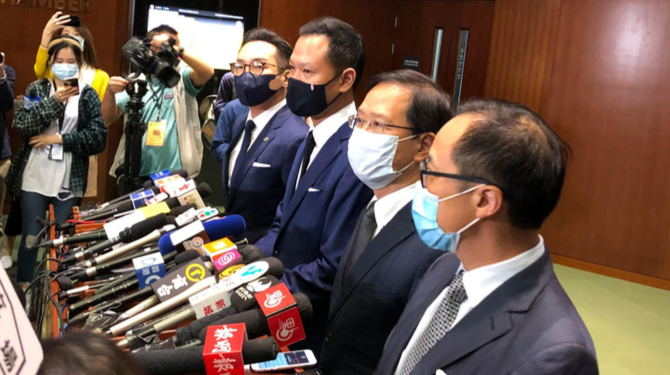Sign up for our free daily newsletter
YOUR PRIVACY - PLEASE READ CAREFULLY DATA PROTECTION STATEMENT
Below we explain how we will communicate with you. We set out how we use your data in our Privacy Policy.
Global City Media, and its associated brands will use the lawful basis of legitimate interests to use
the
contact details you have supplied to contact you regarding our publications, events, training,
reader
research, and other relevant information. We will always give you the option to opt out of our
marketing.
By clicking submit, you confirm that you understand and accept the Terms & Conditions and Privacy Policy
Beverley McLachlin, the former Chief Justice of the Supreme Court of Canada, has announced her retirement from Hong Kong’s Court of Final Appeal (CFA) when her term of office expires in July.
In a statement, she said she still had “confidence in the members of the court, their independence and their determination to uphold the rule of law”, adding that she is stepping down for family reasons. Her announcement follows the resignation of UK judges Lord Collins and Lord Sumption from the CFA last week.
Lord Sumption subsequently voiced his deep-seated concerns about the rule of law in Hong Kong. In an article for the Financial Times, he underscored the threat posed by Hong Kong’s national security laws, introduced by Beijing in 2022 and amended in 2024, and the use of colonial-era sedition laws.
He also highlighted the interpretation of Hong Kong’s Basic Law in the recent Jimmy Lai case, under which Lai was denied his counsel of choice from the UK despite court rulings allowing him to do so.
Sumption said he is also concerned over “the constant drumbeat from a compliant press, hardline lawmakers, government officers and China Daily”, which he argued made their work difficult.
Sumption said that most of Hong Kong’s judges are “honourable people with all the liberal instincts of the common law” but operated in “an impossible political environment created by China”.
Sumption added: “A chorus of outrage follows rare decisions to grant bail or acquit. There are continual calls for judicial ‘patriotism’. It requires unusual courage for local judges to swim against such a strong political tide. Unlike the overseas judges, they have nowhere else to go.”
Hong Kong’s chief executive, John Lee, issued a lengthy rebuttal of Sumption’s opinions, expressing “strong disagreements” with them.
He said: “A judge may dislike a political system [or] a particular piece of legislation, but where the expertise of a judge is concerned, that judge should follow the evidence and the law in interpreting the law correctly, irrespective of their personal politics.”
While three judges have decided to leave, the Law Society Gazette reported Lord Neuberger’s announcement at the Bar Council's annual conference last weekend that he would continue to sit on the CFA.
The former president of the UK Supreme Court told the conference: “My feeling is that so long as I can do good by being there and so long as I think that I might cause harm by leaving, I want to stay and support my judicial colleagues in Hong Kong and support the rule of law as long as I can.”
The resignations of the three retired judges came after the fifth anniversary of a proposed amendment to a controversial extradition bill, which sparked mass protests across the city.
According to the Hong Kong Free Post, the fate of more than 7,000 citizens arrested over the protests remains unclear, with just 2,961 of those apprehended having already faced prosecution.
Email your news and story ideas to: [email protected]










